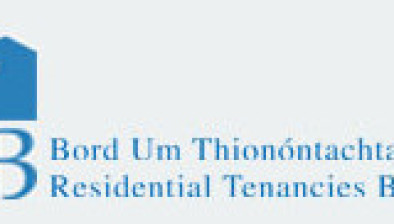High Court: Novel question addressed in relation to issuing of RTB determination orders

The High Court has confirmed that where a determination order of the Residential Tenancies Board is not issued at the same time to all parties to a dispute, the statutory time limit for appeal runs from the latest date that the order was sent to any one party.

About this case:
- Citation:[2025] IEHC 283
- Judgment:
- Court:High Court
- Judge:Ms Justice Eileen Roberts
Delivering judgment for the High Court, Ms Justice Eileen Roberts opined: “I do not accept that s.123(8) should be read as referring only to the issue of a determination order to the party who appeals… If different dates of issue apply in a particular case it seems to me that time should then be counted from the latest date any one of the parties was sent the relevant determination order.”
Background
On 20 May 2024, a Tenancy Tribunal constituted by the Residential Tenancies Board (RTB) heard a tenancy dispute between the appellants and their landlord.
On 22 May 2024, the Tribunal notified the RTB of its determination and in accordance with s.121 of the Residential Tenancies Act 2004, the RTB subsequently made a determination order dated 29 May 2024.
The determination order was posted by the RTB to each of the appellants on 13 June 2024 and was received by them on 14 June 2024.
On 3 July 2024, the appellants stamped an originating notice of motion and grounding affidavit seeking to appeal the order to the High Court on a point of law.
The High Court Central Office date stamped the motion and affidavit as being “filed” on 4 July 2024, with the result that the RTB resisted the appeal as being out of time in circumstances where the statutory 21-day limitation period had allegedly expired on 3 July 2024.
The appellants argued that time began to run upon their receipt of the determination order and that in any event, their appeal was issued on 3 July 2024.
The High Court
Ms Justice Roberts set out s.123 of the 2004 Act, finding it “clear that the relevant period for appeal runs from and begins on the date the determination order ‘is issued to the parties’”.
The court approved Enners v Residential Tenancies Board [2023] IEHC 216 which differentiated between “received by” and “issued to” as distinct and separate concepts, pointing out that s.123 could be clearly distinguished from other statutory provisions such as s.7(12B) of the Solicitors (Amendment) Act 1960 which specify that time runs from the date of “receipt” of notice of a matter to be appealed against.
Holding that the date of “issue” of the determination order was the date upon which it was posted or otherwise sent, Ms Justice Roberts proceeded to analyse a question not previously considered by the courts — “what happens if the relevant order is sent on different dates to different parties – recognising that s.123(8) refers to the date that the determination order is ‘issued to the parties’”.
The judge recounted that in circumstances where there was no evidence before the court as to when the order was posted to the landlord, the court had requested that an affidavit be sworn exhibiting evidence thereof and that affidavit had confirmed that the order was sent to all parties on 13 June 2024.
Ms Justice Roberts confirmed: “Had the determination order been sent to the landlord on a different date I believe this could have impacted the calculation of the relevant period for the purposes of s.123(8) of the 2004 Act.”
The judge did not accept that s.123(8) of the 2004 Act should be read as referring only to the issue of a determination order to the party who appeals or that there could be different relevant periods for different parties entitled to appeal a determination order, noting that if different dates of issue apply, time runs from the latest date that any one party was sent the determination order.
In this regard, the court advised that the RTB should, in future, provide upon the request of any party intending to appeal a confirmation that all parties were issued with the relevant order on the same date.
Finding it well-established law that the time limit in s.123 is absolute and that the court has no jurisdiction to extend same, Ms Justice Roberts was satisfied that day one of the 21-day period to bring an appeal commenced on 13 June 2024 and expired on 3 July 2024.
Having regard to Abeyneh v RTB [2023] IEHC 81 and MCK v. H. [2002] WJSC-HC 5092, the judge confirmed that the appellants’ notice of motion and grounding affidavit stopped the running of the relevant appeal period only when they were filed with the Central Office on 4 July 2024.
In this regard, Ms Justice Roberts remarked: “While this may appear harsh to the appellants, who are unrepresented parties, the terms of a non-extendable statutory time limit are either met or they are not and thus the position is a binary one in terms of compliance… There must be certainty as to the binding effect of determination orders.”
Conclusion
Accordingly, the High Court indicated that the appeal must fail.
Katherine O’Driscoll v The Residential Tenancies Board [2025] IEHC 283









